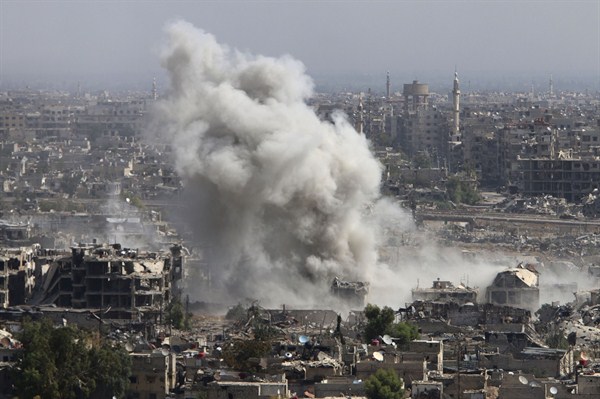Russia’s combat operations in Syria, barely three weeks old, are the kind of expeditionary campaign that Moscow has not undertaken since the Soviet war in Afghanistan in the 1980s. This intervention is the consequence of Presidents Vladimir Putin and Barack Obama both following through on the original, respective paths they chose in Syria. While the United States sought to avoid military entanglement and stay out of the conflict—doing the bare minimum to appease regional allies in their efforts to force Bashar al-Assad out of power—Russia remained consistent in its belief that the Syrian state represents the only viable and legitimate actor in the country, and its forces the only ones worth supporting. Moscow has always been willing to pay a higher political and military price to prevent a Syrian army collapse.
Though still the subject of speculation, Russian intentions in Syria and the strategy driving it have become much clearer. Russia’s intervention is a multilayered gambit, but the tertiary goals and machinations are often exaggerated to mask its straightforward purpose: This is about changing the facts on the ground and imposing new realities to leverage a different political outcome in Syria, not necessarily at the expense of the U.S., but almost certainly its allies in the region.
What motivated the operation was the increasingly desperate military situation of Assad’s forces after territorial losses in northwestern Syria last spring, close to the regime’s coastal stronghold around Latakia. Assad sounded the alarm in June, compelling Russia and Iran to come up with a military plan to rescue both the Syrian army and, as a consequence, their own ability to maintain a deciding hand in the war. In northwestern Syria, the Syrian army was being eaten away by an Islamist coalition of rebel and jihadi groups known as Jaish al-Fatah, or the Army of Conquest, which includes some moderate fighters but is largely led by the Nusra Front, al-Qaida’s Syrian branch.

